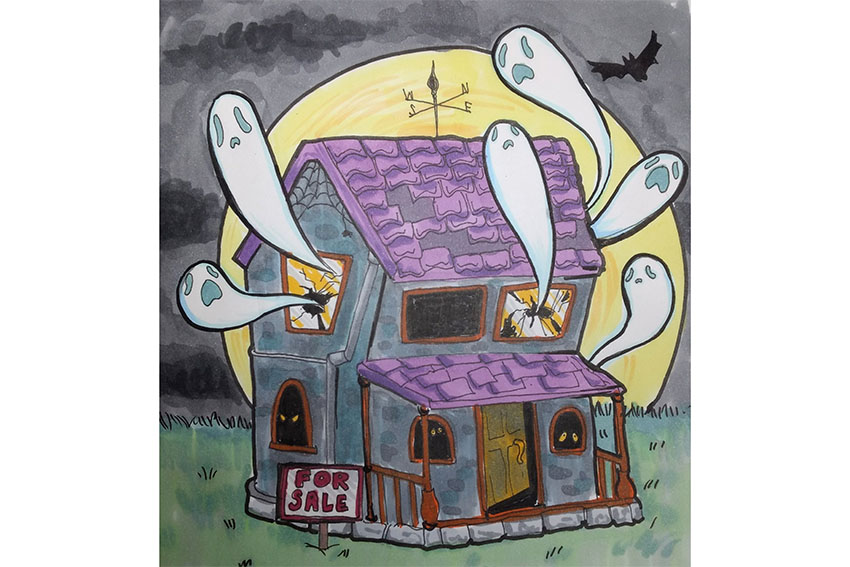Ghosts are real. That’s the implication of 1991 court case Stambovsky v. Ackley, which established that a house could be haunted by its reputation, if nothing else. The case began when Jeffrey Stambovsky made a down payment on a house, unaware of its reputation as a hub for ghosts and poltergeists, and then tried to sue the seller. Although his case was successful, others weren’t so lucky.
If you don’t want to make the same mistake, here are a few tips to make sure you won’t be sharing your new living space with an unwanted visitor.
1. Ask the previous owner or real estate agent
In real estate, a “stigmatized” property is one that is undesirable to buyers for reasons other than its physical features. In other words, when a property is stigmatized, that usually means someone died on the location or that it is believed to be haunted. A real estate agent is not legally required to tell a potential buyer if a property is stigmatized. If a buyer starts the conversation, however, it is likely the real estate agent will be honest rather than risk their reputation.
2. Cross reference death records and property records
A time-consuming but surefire way to find out if there’s potential for a lingering spirit in your new home is to dig through your location’s property records and search the death records of previous residents.
If you’re not the investigative type but are willing to spend money to see if someone has died in your house, the website DiedinHouse.com has your back. For a small fee, the database does the work of cross-referencing death and other records in order to determine its history, and not just the dead-person kind. The database can tell you if your prospective home or apartment has ever flooded, caught fire, been used as a meth lab or if a previous resident was a sex offender.
3. Check the Seller Disclosure form
A seller is not required to mention a death, just as a real estate agent is not legally required to mention it either. It is possible, however, for the seller to mention deaths or paranormal suspicions on the seller disclosure form, where they list material facts about the location. It’s not very likely for a seller to disclose information here since a death inside the residence is not regarded as a “material fact” in most states, but if you’re concerned about the property being haunted, it doesn’t hurt to check.
4. Ask neighbors
If you’re not certain about the status of your location, it may be worthwhile to ask people who live next door or to pay attention to neighborhood gossip. This might be a bizarre first step and an odd way to greet your potential neighbors, so it’s probably best to wait until you are reasonably suspicious or have exhausted all other options before knocking on doors.















